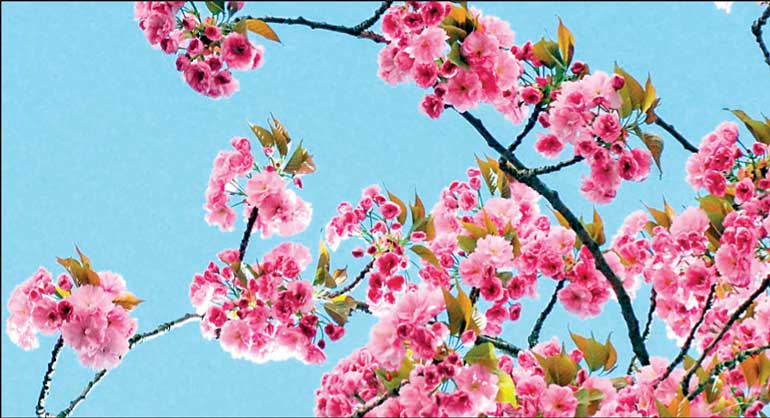Monday Feb 16, 2026
Monday Feb 16, 2026
Saturday, 13 May 2023 00:00 - - {{hitsCtrl.values.hits}}

For improving the qualitative aspect of our lives, there is a lot we can learn from within ourselves, from within our cultures and also from those of others; other nations and traditions.
Today we take a brief look at the concept of Ikigai which could be translated as ‘the reason for being alive’; the reason why we would want to get out of bed, the reason that gives us holistic value to our lives.
Ikigai and its related practical concepts could be the possible secrets of Japan, which rose from the ashes of World War II, did away with any vestige of self-pity, revenge or frustration and calmly picked up the pieces, seeking financial assistance from its former enemy, the US, embarking on a spectacular journey of peace, courage, determination, innovation and sustainable success. They say if you see one person of a nation that you have seen them all. It is possible that no one has ever met a cross, conceited, cranky, lazy or depressed Japanese.
I have not. One of the first Japanese I met was at the age of 22 at a youth hostel in Netherlands. She was a young executive at a Japanese company, around my then age, and the first thing she did after seeing me and smiling (with a slight respectful bow) was to congratulate me on how my country was making the best traveling bags ever! She then pointed to her traveling bag manufacturing label and said; ‘See, Sri Lanka!”
Any low winter mood I was feeling that November vanished and as she and I had dinner I was initially introduced to Ikigai.
On and off through life, I have made effort to delve deeper into this philosophy when I needed its aid at life’s different junctures. Last year, researching some unique cultural and philosophical secrets that may have helped affected nations recover from World War II, I found in relation to Japan, how the concept of Ikigai could have contributed significantly.
Ikigai pertains to finding purpose and happiness and is said to originate from the island of Okinawa which was a place of extreme death and suffering during World War II. Today Okinawa is hailed as a place where people live the longest and are the happiest. Many a psychologist have researched on the secrets which they link with the practice of Ikigai
Ikigai is about breaking down to small pieces the puzzle of getting through life happily, and doing any small task with feeling; i.e. finding joy in any minor effort that may be connected with a large project. This could help in modern organisations where at times the individual job seems mundane and the person feels insignificant.
In personal application, I have found the core teaching of Ikigai to be a major stress buster. The basic principle of Ikigai is waking up with a strong sense of purpose, that we are contributing something of meaning in this world.
A hobby or an idea then becomes a purposeful mission in our day. Ikigai is infused with the Buddhist cultural influence that the Japanese uses practically; finding awareness and serenity in anything that could assist oneself or others to become a better person, transforming even in a marginal way, any space one occupies, focusing on one action at a time.
The priority of Ikigai is not wealth creation but happiness creation and this which are two sides of the coin, end up naturally in wealth creation.
In a world where wealth creation can be misconstrued as limited to money making, leading to despair and depression as well as stress and disease, Ikigai, offers a mental revolution. Ikigai is said to be especially practiced astutely by the people of Okinawa who live very long, transforming how we look at ageing. Ageing in Okinawa is not about being sick, depressed or in a hospital bed. It is about being outdoors, working, and going about life’s tasks happily, continuing with contributing to the tapestry of being until such time when we have to exit from earth.
In the weeks to come Harmony page will be researching more into the philosophy behind Ikigai and connected theories, in relation to how this may have helped making schools in Japan robust, mentally healthy places filled with practical purpose, happiness and positive action.
(SV)